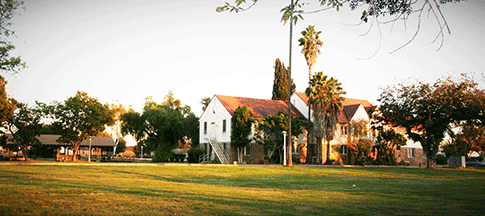Department of State Hospitals (DSH) - Metropolitan: Home

HISTORY
Opening in 1916, this state hospital was once a self-sufficient facility with its own farm, dairy and animals. Today, DSH-Metropolitan is located in Norwalk in Los Angeles County. The hospital has an open campus within a security perimeter. Due to community concerns, this facility does not accept patients with criminal history that includes murder, sex crimes, or escape. The hospital does not accept voluntary admissions.
![Metropolitan Hospital [Graphics]](images/DeptofNutritionServices_sm.gif)
HOSPITAL STAFF
Approximately 1,530 employees work at DSH-Metropolitan providing around-the-clock care, including psychologists, psychiatrists, social workers, rehabilitation therapists, psychiatric technicians, registered nurses, psychiatric technicians, and other clinical and administrative staff. There are approximately 190 different job classifications at the facility, including hospital police, kitchen staff, custodial staff, warehouse workers, groundskeepers, information technology staff, plant operations staff, spiritual leaders, and other clinical and administrative staff.
TREATMENT AND PROGRAMS
DSH - Metropolitan is the first state hospital in California to have a specialized unit dedicated to Dialectical Behavior Therapy (DBT). DBT is a comprehensive, cognitive-behavioral treatment for complex, difficult-to-treat mental disorders founded in the late 1970s by psychologist Marsha Linehan.
Research indicates DBT to be effective in reducing:
- Suicidal and self-injurious behaviors
- Chronic feeling of emptiness and depression
- Intense anger or difficulty controlling anger
- Impulsive behaviors that are potentially self-damaging (e.g., substance abuse)
- Psychiatric hospitalizations
DSH - Metropolitan has a specialized unit dedicated to DBT as a treatment modality for individuals who have emotional responses that are poorly modulated, and does not fall within the conventionally accepted range. It is also for patients who demonstrate maladaptive behavior such as suicidal actions, aggression towards others, self-harm and substance use.
Each individual participates in the following activities:
- DBT Skills Groups which include 4 modules: Mindfulness, Emotional Regulation, Distress Tolerance, and Interpersonal Relationships
- Homework and Review Group
- Weekly Individual Therapy
- Bi-Weekly Outings
- Groups focused on practicing and applying skills
Other treatment programs include:
The Trial Competency Program is for patients admitted to the hospital pursuant to Penal Code (PC) 1370, Incompetent to Stand Trial. These patients receive a specialized program of treatment which is specifically designed to help the patient gain the knowledge and skills necessary to return to court. The goal is for the patient to understand court proceedings and effectively participate in their defense.
The Lanterman-Petris-Short program provides treatment for civilly committed patients who suffer from severe symptoms of mental illness, who engage in the behaviors that are dangerous to themselves or others or are gravelly disabled by their mental illness and thereby unable to formulate a viable plan for self-care. The program provides a highly structured treatment environment for re-socialization in preparation for community placement.
Our fully-licensed Skilled Nursing Facility (SNF) provides continuous nursing treatment and care for both Penal Code (PC) and civilly committed patients whose primary need is availability of skilled nursing care on an extended basis. Our SNF is able to provide round-the-clock inpatient health care.
ACCREDITATION
This facility is accredited by the Joint Commission on Accreditation of Healthcare Organizations. The Joint Commission conducts unannounced surveys of this hospital at least every three years. The purpose of the survey is to evaluate the hospital's compliance with nationally established Joint Commission standards. The survey results are used to determine whether accreditation should be awarded and under what conditions that happens. Joint Commission standards deal with organization quality, safety of care issues and the safety of the environment in which care is provided.
COMMUNITY
Approximately 80 of the staff at DSH-Metropolitan live in Norwalk. The rest reside within a seventy-mile radius in Los Angeles, Orange, Riverside, San Bernardino, and Ventura counties.
The hospital is a partner with various colleges and universities throughout Southern California. Thousands of graduates over the course of many years have worked at DSH-Metropolitan after completing psychiatric technician education programs at Cypress College and Mt. San Antonio College (Mt. SAC). Similarly, a number of registered nurses from area colleges have completed clinical rotation in our hospital. These colleges include American University of Health Sciences, California State University, Dominguez Hills, West Coast University, and CNI College.
The hospital also provides opportunities for elective rotations for medical students from several medical schools as well as resident physicians from nearby residency programs. DSH-Metropolitan has a psychology doctoral internship program which accepts five interns every year.
DSH - Metropolitan provides field work training opportunities for Master’s in Social Work students. It is affiliated with USC, CSU Dominguez Hills, CSU Fullerton, CSU Long Beach, CSU Los Angeles, and Azusa Pacific University. DSH - Metropolitan Social Work Department also has a Professional Development Committee. Members of the DSH - Metropolitan Social Work department additionally make efforts to actively participate in the mental health community; giving presentations at the MSH Mental Health Community Education Program and local NAMI meetings, being invited to guest lecture and teach at local universities and community colleges, serving as board members of professional organizations, as well as, participating in academic committees and work groups.
DSH-Metropolitan is the second highest employer of the City of Norwalk, after the unified school district. The hospital is an active partner in the City of Norwalk’s Annual Angel Tree Project, with hospital staff donating canned foods and unwrapped toys during the holiday season for the community in need.
Metropolitan
Related Links
- Patient Info Request - FAQ's
- Notice of Privacy Practices (English)
- Notice of Privacy Practices - Español (Spanish)
- Notice of Privacy Practices - 한국인 (Korean)
- Notice of Privacy Practices - Tagalog
- Notice of Privacy Practices - 繁體中文 (Traditional Chinese)
- Notice of Privacy Practices - Tiếng Việt (Vietnamese)

